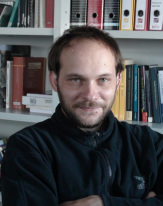Klaus Gärtner, Post-Doc
@CFCUL/University of Lisbon
I am interested in issues located in the intersection between Epistemology and Philosophy of Mind.
His dissertation was about how to understand the privileged access to the phenomenal. It is often assumed that knowledge about our own minds is epistemically privileged, or in other words, that there is an asymmetry between self-knowledge and knowledge about the world. This intuition, however, is not harmless.
In Klaus' thesis, he examined this issue, presupposing that not all mental states qualify as candidate for privileged self-knowledge. Contemporary philosophers assume that a great deal of our mental life may pass through without being noticed and other mental activities clearly involve a margin of error. A good example for the latter is memory. However, when studying the mystery of consciousness, we deeply rely on the intuitions about 'privileged access'. It is therefore often assumed that current conscious experiences with their phenomenal properties are the most viable candidates for such kind of knowledge. In my dissertation, I concentrated on the reasons for privileged access. As a first step, I focus on why the popular acquaintance approach is wrong, and as a second step, I triex to give an alternative explanation based on the revelation thesis.
Other research interests include the intersection between Self and Consciousness in general, and the difference between pre-reflexive Self-Consciousness and reflexive Self-Consciousness in particular.
Publications
Fonseca, J. and Gärtner, K. (2009): The Relativity of the Identity of the Self in: The Reasoner, Volume 3, Number 9.
http://uk.sitestat.com/kent/kentext/ssecl.philosophy.jw.TheReasoner.vol3.TheReasoner3(9)pdf&ns_&ns_url=http://www.kent.ac.uk/secl/philosophy/jw/TheReasoner/vol3/TheReasoner3(9).pdf
Gärtner, K. (forthcoming): “How Consciousness explains the Self”, in: Philosophical perspectives on the Self, João Fonseca and
Jorge Gonçalves (eds.), Lisbon Philosophical Studies, Peter Lang, Bern.

